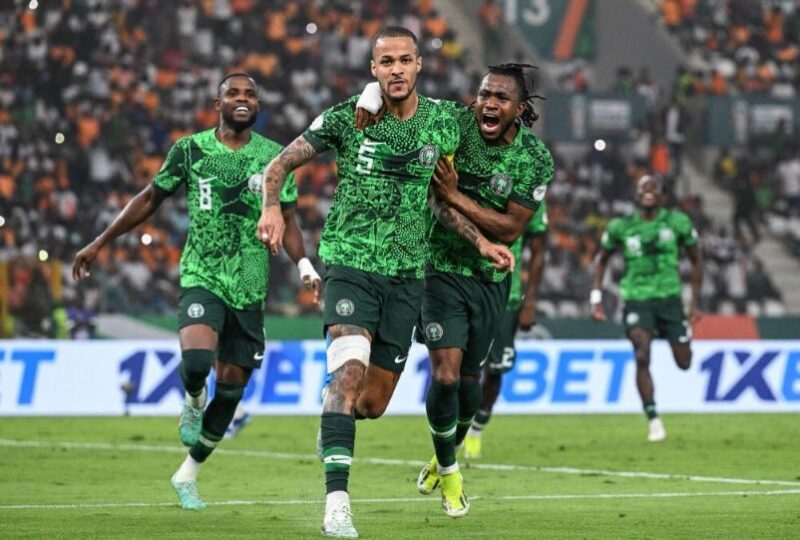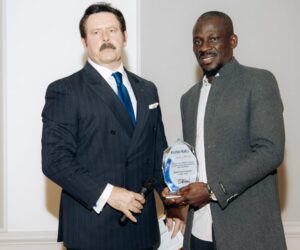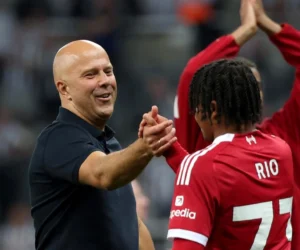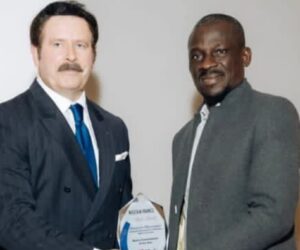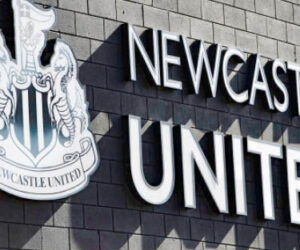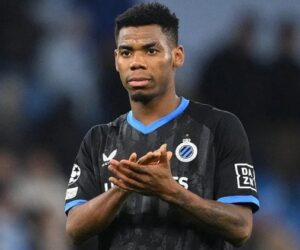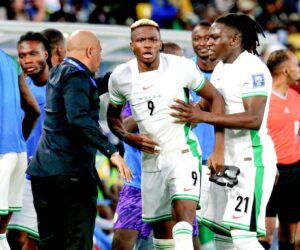1
Realising that they are the weaker side in the South American 2026 FIFA World Cup qualifiers, Bolivia, in their match against favoured Uruguay recently, deployed perhaps what they thought was a strategy to at least get a result.
La Verde (as the national team is nicknamed) took the match to the Estadio Municipal de Villa Ingenio in El Alto, a city located 4,150 meters above sea level. Consequently, Uruguay endured one of the toughest matches in recent memory, fighting to a grueling 0-0 draw against their host, Bolivia.
In the match, Uruguay controlled the game initially and were tipped to come out winners but at a time in the hostilities, the conditions reportedly turned the match into a survival test for the visitors rather than a typical football contest.
Throughout the 90 minutes, the lack of oxygen affected nearly every player on the pitch. Running, pressing and even simple ball control became a struggle. José María Giménez, Uruguay’s captain and one of the most experienced players in the squad, was seen on the bench in the final moments of the match with an oxygen mask pressed to his face, gasping for breath.
Speaking after the match, Giménez described the experience as “madness,” Still, he tried to draw positives from the result.
“It’s a point that should be truly appreciated in the end,” he said.
“People who watch from home may not understand how hard it is to play here. We couldn’t breathe. It wasn’t just tiredness it felt like our lungs were closing. But we fought until the end.”
Perhaps one reason the Uruguay team suffered so much was their inability to acclimatise ahead of the game by training in venue with similar altitude.
Playing in hot or humid climates can be just as demanding as cold weather. High temperatures increase fatigue, reduce sprinting intensity, and often result in hydration breaks during each half. Tactical pacing becomes vital. Teams used to milder conditions may struggle to maintain energy levels or press with intensity.
Similarly, playing in an extremely cold condition would also make teams not used to such weather to struggle.
The above became imperative as the Super Eagles would be playing Bafana Bafana of South Africa in a crucial 2026 World Cup qualifier in Bloemfontein, a place with an extremely high altitude. The climate in the place is very harsh and unforgiving.
The altitude of Bloemfontein is approximately 1,395 meters (4,577 feet) above sea level and this is concerning when viewed from the fact that even as most of the Nigerian players are coming from Europe, they are playing over there at very mild altitude.
For instance, London’s altitude which hardly change in months stands at 35 meters (115 feet) above sea level. Also, taking Rome as a cue for Italy, the city is at an altitude of about 13 meters (43 feet) above sea level. Spain has a high average altitude of over 600 meters (1,969 feet) above sea level, while Uyo, where the former African champions would open their camp on September 1 is approximately 100 meters (328 feet) above sea level.
From the above and while the Super Eagles are expected to see off the Amavubi of Rwanda first in Uyo, it is evident that beyond the quest to wrestle the chestnuts out of the fire in the second match in the former apartheid country, a tensed battle looms large for them in the September 9 game against South Africa at the Free State Stadium, a venue sitting at over 1,395 metres above sea level.
For Nigeria, more accustomed to humid, low-altitude conditions, the thinner air and biting winter chill of the Southern Hemisphere in Bloemfontein could pose a stern physical and mental test.
According to a respected football historian, Mr Kunle Solaja, Nigeria has been there before with a story to tell.
He said; “Nigeria’s 2-1 defeat to Greece in Bloemfontein at the 2010 World Cup was marked not only by Sani Kaita’s red card but also by visible signs of fatigue and discomfort in the freezing conditions,” he said.
“Then, Nigeria’s officials chose to base the team in Durban, a coastal city with warm year-round weather, ignoring the fact that two of their three group-stage games were scheduled in colder, high-altitude cities like Johannesburg and Bloemfontein.
“By contrast, England prepared in the Austrian Alps to acclimatise before heading south.
The effects were telling. By the second group game against Greece, Nigerian players appeared drained even before Kaita’s dismissal.
“From personal experience in Bloemfontein, my colleague, Tunde Sulaiman, and I were too frozen to venture outside our hotel the day after the Nigeria-Greece match.
“But that was luxury compared to the fate of another journalist who joined us the previous evening.
“He was shivering uncontrollably, literally chilled to the marrow. We had to improvise first aid: we sat him down and dipped his feet into a bucket of warm water, using the electric kettle in his room to heat batch after batch. Without that intervention, the consequences could have been grave.”
The publisher of Sports Village Square then warned the NFF ahead of the crucial World Cup qualifiers with the Bafana Bafana.
“The match with Bafana Bafana on the night of September 9 will therefore also be a battle with the elements.
“This time, the Nigeria Football Federation has been warned: preparation must extend beyond tactics. Meteorologists have forecast cold night temperatures in Bloemfontein during the match window, with strong winds also likely to sweep through the Free State.
“To withstand the conditions, experts have advised the use of thermal undergarments and altitude-adjusted training sessions ahead of the fixture.
“Failure to adapt could see the Super Eagles suffer the same physical decline and lapses in concentration that cost them dearly in 2010,” he warned.
Meanwhile, South Africa, under Coach Hugo Broos, is expected to press high and exploit their natural familiarity with the environment. Nigeria, in turn, will rely on pace and technical sharpness, with the hope of grabbing an early goal to silence the home crowd.
However, the NFF will be expected to heed the call to ensure the team (with expectations that they would see off Rwanda) acclimatises ahead of time to avoid even a draw as the remaining fixtures are must-win engagements for the former African champions.
Despite the climatic concerns, the game remains a continuation of one of Africa’s most storied rivalries. From Nigeria’s dominance in the 1990s to South Africa’s resurgence in recent years, every encounter carries both footballing and symbolic weight.
This Bloemfontein clash will therefore not only shape the path to the 2026 World Cup but also add a new chapter to a rivalry where bragging rights and national pride are always on the line.
And with the weather tipped to play as big a role as tactics, the Super Eagles must come armed not just with skill and strategy, but also with resilience against the biting Free State cold.
Meanwhile, while the weather concerns mount ahead of that September 9 clash, Eric Chelle, the coach of the Super Eagles, has said the most important clash right now remains the game against Rwanda.
Speaking on the chances of the Super Eagles making it to the 2026 World Cup in the United States, Mexico and Canada, the Franco-Malian noted that while they hope to beat the the former apartheid country, the emphasis should first be on getting past the Amavubi, without which, the South African match would be efforts in futility.
The Malian said as per scorenigeria.com: “It’s an obligation we win in South Africa, but the most important match for us right now is against Rwanda, in Uyo.
“South Africa are a good side, but for that game, we cannot afford to allow them to play, first, we have to beat Rwanda at home and then we will focus on the game in South Africa.
“If we fail to beat Rwanda, then the match in South Africa will mean less to us. So all efforts now is to beat Rwanda and then we take it to them in South Africa,” he said.
William Troost-Ekong, the captain of the side, has been quoted as saying that the initial determination of winning the remaining matches hasn’t changed, assuring that with hard work and support, they hope to outdo both Amavubi and Bafana Bafana.
“We have a plan and that is to win the remaining matches and that plan hasn’t changed,” he said via a radio station.
“We are starting again with Rwanda and then South Africa. Our plan is to get the six points and take it from there.
“We seek the corporation of everyone to make it happen and hopefully, Nigerians will watch the World Cup with the Super Eagles in attendance,” he assured.
South Africa are currently atop the group with 13 points from six matches, while Nigeria sit in fourth place on seven points after a disappointing run of one win, four draws and one defeat.
The group also features Benin, Rwanda, Zimbabwe and Lesotho. Only the top team will qualify automatically for the World Cup, while the runner-up could get a second chance via the CAF play-offs and possibly the inter-confederation play-offs.
Despite a rocky start, Nigeria remain mathematically in the race with four fixtures left to play.
After September’s double-header against Rwanda and South Africa, the Super Eagles will face Lesotho away and then round off the campaign with a home match against Benin in October.
The reverse fixture in June ended in a 1–1 draw in Uyo, with South Africa’s Themba Zwane opening the scoring before Fisayo Dele-Bashiru equalised early in the second half.
The Eagles will need maximum points in Bloemfontein to revive their qualification hopes and close the six-point gap on South Africa, who are bidding to return to the global stage for the first time since 2010.
Nigeria, three-time African champions, are aiming to reach their seventh World Cup finals, having missed the 2022 edition in Qatar.

